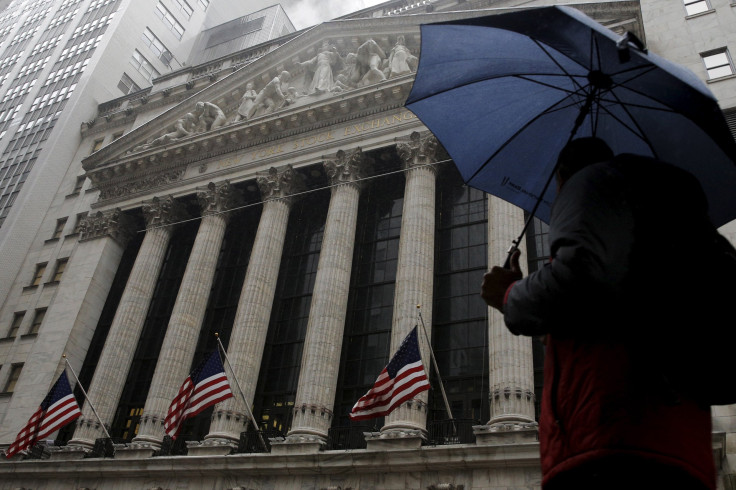Wall Street Campaign Cash Has Flooded Into States That May Try To Close Wall Street’s Big Tax Loophole

Hundreds of protesters were led away from the steps of the United States Capitol on Monday, hands secured behind their backs with white plastic zip ties after they refused to stop their demonstration against the carried-interest tax loophole, which lets wealthy hedge fund managers pay lower tax rates on much of their income. While efforts to close the loophole have stalled in Congress, advocacy groups are now pressing legislators in seven states to end the same tax preference in their local tax codes — a move that would bring in nearly $7.5 billion a year in fresh tax revenue.
Proponents of the reform argue that state tax codes should not allow hedge fund managers and private equity executives to classify the “carried interest” earnings they make off of clients' investments as capital gains, which are taxed at lower rates. They say those earnings should instead be taxed as regular income.
The trouble for those advocates, however, is that — just as in Washington, D.C. — the finance and investment industry in those states is a major campaign contributor. According to state data compiled by the National Institute on Money in State Politics and reviewed by International Business Times, financial interests have flooded state politician campaign coffers with $158 million since 2010, including more than $24 million to the current governors of those states. That gubernatorial cash haul includes nearly $14 million from 10 of the highest-earning hedge fund managers.
The reform fight formally began in March when Democratic assemblymen in New York introduced a bill to end the tax loophole in Wall Street's home state. According to the labor-backed group Hedge Clippers, forcing hedge fund managers and private equity executives to pay the same tax rate as everyone else would generate $3.7 billion a year in revenue in New York. To prevent Wall Street moguls from simply relocating to a neighboring state to avoid the higher tax rates, the legislation is contingent on Connecticut and New Jersey passing a similar measure.
But all roads for legislation lead through governors’ offices. In Connecticut, that office is controlled by Democrat Dannel Malloy, whose state party has benefited from big contributions from the hedge fund industry and who now runs the Democratic Governors Association, which has in 2016 received $250,000 from the founder and former managing member of a major hedge fund, Farallon Capital. In New Jersey, the governor is Chris Christie, whose presidential campaign received seven-figure donations from hedge fund manager Steven Cohen and who served as chairman of the Republican Governors Association as it raised millions from other hedge fund managers.
In New York, Gov. Andrew Cuomo has forged a particularly close relationship with Wall Street, receiving nearly $8 million in donations from the financial industry during his career. That includes $310,000 from some of the biggest hedge fund managers. Most recently, the Democratic governor appeared at a fundraiser in wealthy East Hampton with hedge fund manager Daniel Loeb — who has been among the biggest beneficiaries of the carried-interest loophole. Ahead of a possible run for a third term, Cuomo is raising more cash from the hedge fund industry, according to Politico’s Capital New York.
Illinois is facing major budget problems, some of which could be alleviated with the estimated $433 million in new annual revenue that could be generated if hedge fund managers there are forced to pay regular tax rates. But that state’s government is now run by Bruce Rauner — who made his fortune in the private equity industry, which also benefits from the carried-interest tax loophole. Rauner — who maintains an ownership stake in a private equity firm — won election to the governor’s office in 2014 with the help of $13.5 million in campaign donations from Kenneth Griffin, one of the wealthiest hedge fund managers in the world.
Meanwhile, in Massachusetts — which could generate almost $1 billion a year in new revenue by closing the loophole — the governor’s office is occupied by Republican Charlie Baker, a former venture capital industry executive, whose campaign was boosted by the hedge fund-backed RGA.
Proponents of closing the carried-interest loophole say they recognize the political power of their opponents and expect their legislative initiatives to generate significant resistance, but they say they are confident their efforts will end up reforming state laws.
“In an era of populist outrage over a rigged economy, hedge funds are finding it harder to justify their existence; their standard playbook of greed and reckless behavior has lost legitimacy,” said Michael Kink, executive director of the New York-based Strong Economy for All Coalition, which is pushing the legislation. “Closure of the carried-interest loophole is widely seen as commonsense reform that advances basic fairness for taxpayers and for the economy."
CORRECTION: This article has been corrected to reflect that $250,000 was given to the DGA by Farallon Capital's founder and former managing partner, not by the firm itself.
© Copyright IBTimes 2024. All rights reserved.






















